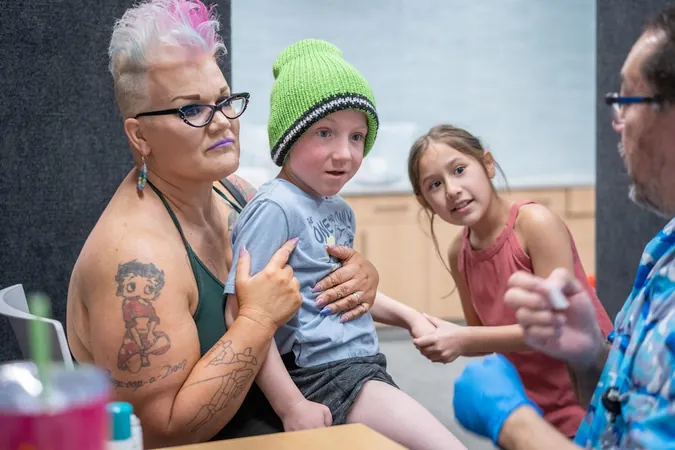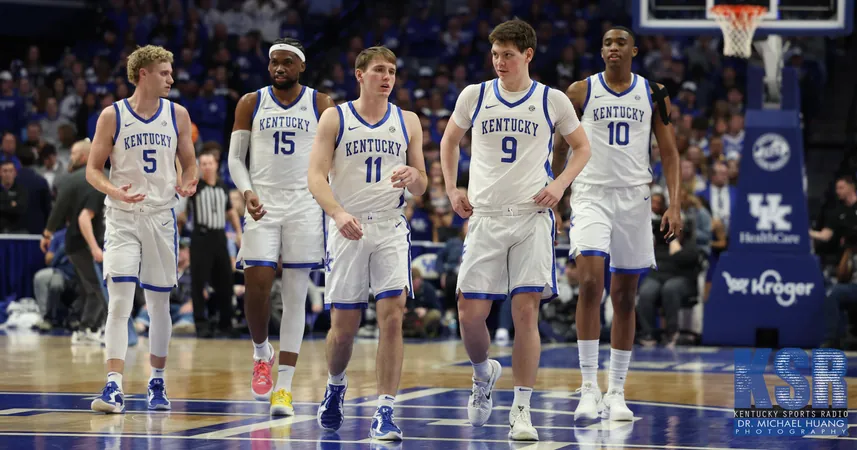
Texas Patients Show Signs of Vitamin A Toxicity Following RFK Jr.'s Measles Treatment Claims
2025-03-27
Author: Ling
Texas Patients Show Signs of Vitamin A Toxicity Following RFK Jr.'s Measles Treatment Claims
In an alarming turn of events, several hospitalized patients in West Texas have exhibited signs of vitamin A toxicity after Health and Human Services Secretary Robert F. Kennedy Jr. endorsed the treatment of measles with vitamin A. The state is currently grappling with one of the largest measles outbreaks in decades, with over 320 reported cases and one child tragically losing their life.
Reports indicate that patients, including several unvaccinated children, at Covenant Children’s Hospital in Lubbock have shown abnormal liver function due to excessive doses of vitamin A, particularly from cod liver oil. Following RFK Jr.'s claims made in a March 4 Fox News interview that vitamin A could effectively treat measles infection, there has been a surge in demand for cod liver oil in local pharmacies, leaving shelves empty.
Tyler Schultz, a pharmacy manager in Lubbock, remarked, “It’s flying off the shelves," highlighting the swift reaction to Kennedy's recommendations. As parents turned to the supplement in hopes of protecting their children during the outbreak, health experts began expressing concerns about the inappropriate use of high-dose vitamin A.
The Council for Responsible Nutrition issued a statement cautioning against excessive vitamin A supplementation, especially in children, stressing that while vitamin A plays a critical role in immune function, it has not been scientifically proven to prevent measles. Health authorities maintain that vitamin A can be effective in treating severe cases of measles but must only be administered under medical supervision.
Symptoms of vitamin A toxicity can be severe, including headaches, rashes, irritability, and gastrointestinal distress, and can lead to irreversible damage if not addressed promptly.
Kennedy also called for a reevaluation of Centers for Disease Control and Prevention (CDC) guidelines to promote vitamin A usage during measles infections. However, experts insist that vaccines remain the primary protective measure against measles. Vaccination has proven to be 97% effective with two doses of the measles, mumps, and rubella (MMR) vaccine.
Dr. Stacey Rose from Baylor College of Medicine emphasized, “Vitamin A is not a replacement for vaccination.” The ongoing outbreak serves as a stark reminder of the public health risks associated with vaccine hesitancy and misinformation.
As health officials continue to monitor the situation, they reiterate the importance of adhering to established vaccination protocols to prevent further outbreaks of this entirely preventable disease.
In a landscape where misinformation can spread as quickly as diseases, the call for informed health choices has never been more critical. Are you doing enough to protect your family in this vaccine-skeptical era?



 Brasil (PT)
Brasil (PT)
 Canada (EN)
Canada (EN)
 Chile (ES)
Chile (ES)
 Česko (CS)
Česko (CS)
 대한민국 (KO)
대한민국 (KO)
 España (ES)
España (ES)
 France (FR)
France (FR)
 Hong Kong (EN)
Hong Kong (EN)
 Italia (IT)
Italia (IT)
 日本 (JA)
日本 (JA)
 Magyarország (HU)
Magyarország (HU)
 Norge (NO)
Norge (NO)
 Polska (PL)
Polska (PL)
 Schweiz (DE)
Schweiz (DE)
 Singapore (EN)
Singapore (EN)
 Sverige (SV)
Sverige (SV)
 Suomi (FI)
Suomi (FI)
 Türkiye (TR)
Türkiye (TR)
 الإمارات العربية المتحدة (AR)
الإمارات العربية المتحدة (AR)